Did you know a rabbit’s digestive system is like a finely tuned machine designed to handle a diet packed with fibrous plants? It’s pretty fascinating when you think about it! As someone who’s spent hours researching and caring for rabbits, I’ve come to appreciate just how critical their gut health is. A slight imbalance can lead to some pretty serious issues, like gastrointestinal stasis, which can turn into an emergency if not caught early. That’s why understanding their digestion is important—the key to keeping them happy and thriving.
Let’s break it down together. Everything about a rabbit’s digestive system is built for efficiency, from their ever-growing teeth to their unique way of fermenting food in their hindgut. But it’s not just about biology—it’s about knowing what to feed them, spotting signs of trouble, and making hay their number one dietary staple. I’m here to share what I’ve learned so you can feel confident in giving your furry friend the best care possible. Ready to explore the world of rabbit digestion? Let’s hop right in!
Rabbit Digestion Demystified: What Every Owner Should Know
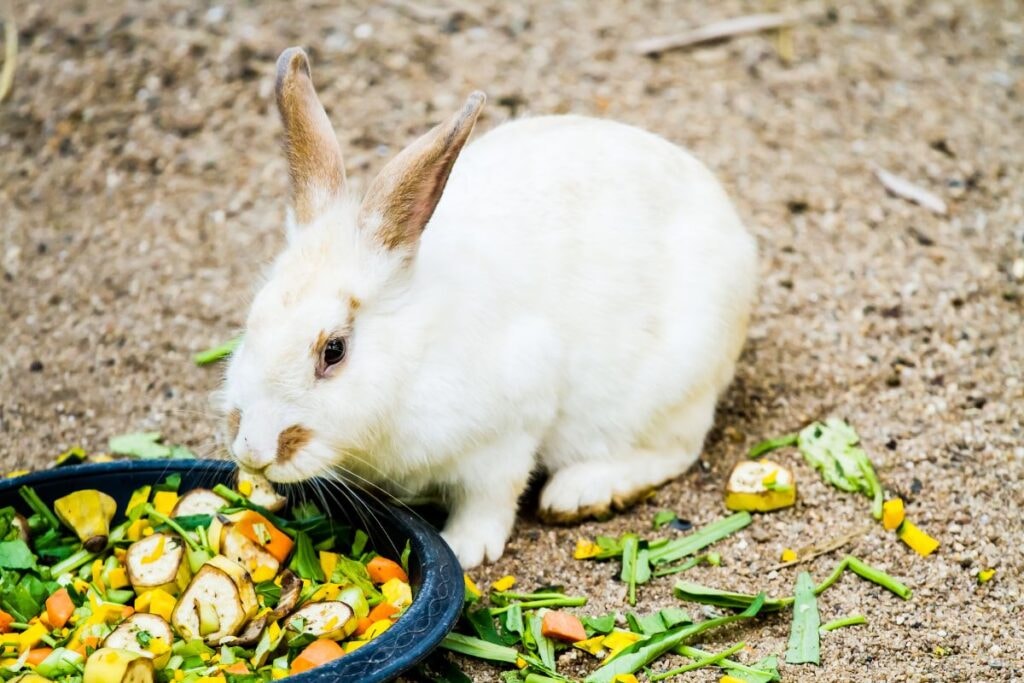
Rabbits have a digestive system that differs from what you might expect. It’s super complex and deserves a closer look. Unlike humans or even dogs, rabbits have a one-way system. Stuff goes in, gets broken down, absorbed, and goes out. It’s like a conveyor belt for food.
Rabbits have evolved to handle a diet mainly composed of high-fiber plants. This evolution allows them to make the most out of low-nutrient food sources. It’s fascinating how they efficiently use what some animals might pass as waste.
Understanding why your bunny’s digestive health is crucial can help you keep them healthy and happy. Since they can’t throw up, any slight hiccup in their system can lead to serious problems. So, knowing how it all works and keeping tabs on their digestion is super important.

Key Highlights: Understanding Your Rabbit’s Digestive System
-
Rabbits have a unique digestive process where their food undergoes fermentation in the cecum, allowing them to absorb vital nutrients from fibrous plants. Their digestive system is finely tuned to process hay and fresh greens, making them essential for maintaining gut health.
-
Familiarizing yourself with signs of digestive problems, such as GI stasis, bloating, or diarrhea, is crucial for early intervention. Observing changes in appetite, behavior, and stool production can help identify issues before they become emergencies.
-
A high-fiber diet is essential for rabbits, with hay making up the bulk of their food. Fresh greens, high-quality pellets, and occasional fruit treats should be carefully balanced to support their digestive health. Avoid harmful foods like sugary snacks, seeds, and nuts.
-
Regular vet check-ups, at-home monitoring of eating and bathroom habits, and encouraging natural behaviors such as foraging and exercise all play a vital role in maintaining a healthy digestive system for your rabbit. A stress-free environment also contributes to optimal gut function.
-
Staying informed about your rabbit’s digestive health and acting quickly if you notice any unusual signs can prevent serious health issues. Being proactive in their care ensures your bunny’s happy and healthy life.
Get to Know Your Rabbit’s Digestive Process
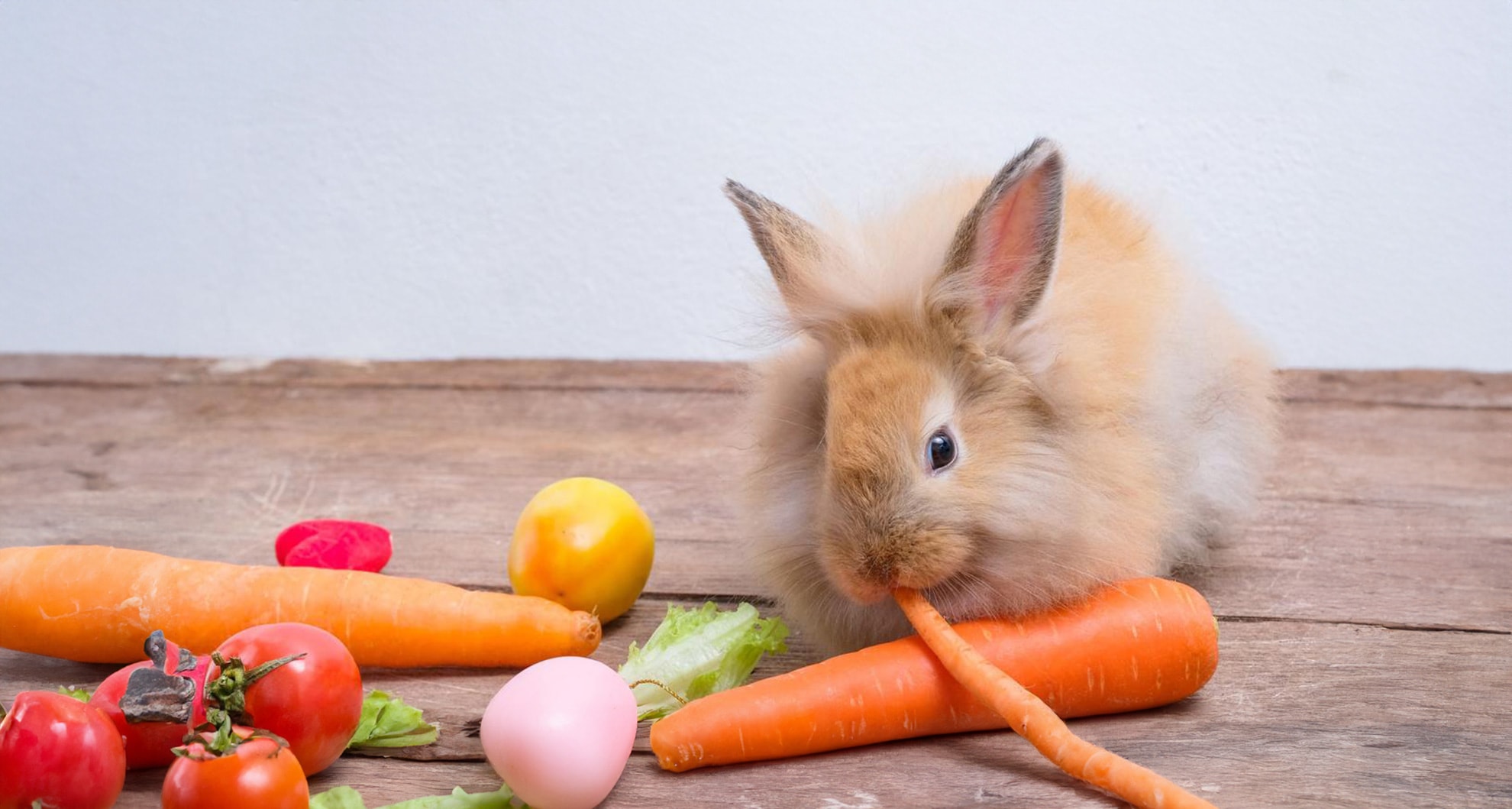
Rabbits have this incredible digestive system that turns every nibble into a nutritional journey. From the moment they start chewing, their food begins a fascinating transformation. Their teeth grind everything to perfection, setting the stage for absorbing nutrients efficiently. Understanding your rabbit’s digestive system isn’t just about keeping your bunny fed—it’s about ensuring they thrive.
One of the stars of this journey is the cecum, a remarkable organ that works like a fermentation chamber. It breaks down fiber with the help of good bacteria, unlocking vital nutrients. And yes, if you’ve ever caught your rabbit snacking on their poop, don’t worry—they’re just eating cecotropes, nutrient-packed droppings that play a key role in their health. Knowing the ins and outs of the rabbit’s digestive system will help you become a better bunny parent.
Common Digestive Issues and How to Spot Them
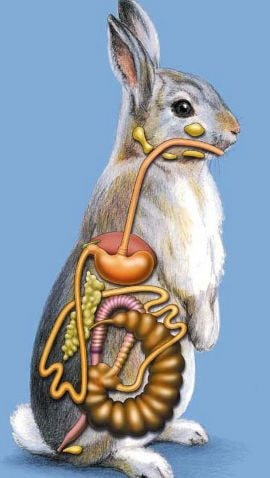
Rabbits can encounter a few roadblocks with their rabbit’s digestive system, and knowing the signs can be a real lifesaver. A rabbit whose digestive system isn’t functioning properly—such as not eating, not pooping, or showing less activity—is waving a big red flag.
GI Stasis
GI Stasis tops the list when it comes to bunny belly troubles. It means the digestive system slows down or stops, often because of stress, dehydration, or an inappropriate diet. This can lead to a painful buildup of gas and bacteria, which is no fun for any bunny. You can spot them if your pet rabbits have these signs:
-
Decreased appetite or refusal to eat.
-
Reduced or absent poop production.
-
Lethargy and Weakness.
-
Bloating.
-
Grinding teeth (bruxism).
-
Straining to defecate.
-
Drooling.
Bloated Bellies
Bloated bellies can also be an issue, often with similar causes to GI Stasis. A bloated rabbit might have a hard, distended stomach and need quick attention to prevent more serious issues. Here’s the sign to spot them:
-
Distended abdomen.
-
Difficulty breathing.
-
Lethargy.
-
Pain.

Diarrhea
Diarrhea in rabbits is a serious issue that I’ve seen can quickly lead to dehydration and other health problems if not addressed right away. If you notice any signs of diarrhea in your rabbit, it’s crucial to get them checked by a veterinarian as soon as possible for proper diagnosis and treatment.
I’ve learned that sudden changes in diet, introducing new foods, or feeding inappropriate treats (like too many sugary ones) can throw off their delicate digestive system. Infections, whether bacterial, viral, or parasitic, are also common culprits. Even new pets, loud noises, or moving homes can stress them out and mess with their digestion. And let’s not forget some medications can cause side effects, including diarrhea. Here are the key signs I look for when I suspect diarrhea in a pet rabbit:
-
Frequent, Small Bowel Movements: I notice they pass more stool than usual, often in tiny amounts.
-
Soft or Liquid Feces: Their stool becomes softer or even watery.
-
Staining Around the Anus: I see the liquid stool stains around their anus.
-
Dehydration: With diarrhea, dehydration is always a concern.
If you spot any of these signs in your rabbit, don’t hesitate to contact the vet immediately.
Hairballs
In rabbits, “hairball” is often used to describe a condition where excessive hair builds up in the digestive tract, leading to a slowdown or blockage. From my experience, if left untreated, hairballs can result in dehydration and even death. Here’s how to spot them:
-
Reduced Appetite: A rabbit may show decreased interest in food, which can be an early warning sign.
-
Straining to Defecate: The rabbit might have difficulty passing stool, struggling more than usual.
-
Decreased Poop Production: The amount of feces produced may drop significantly or even stop altogether.
-
Lethargy: The rabbit may appear more lethargic and less active than usual.
If any of these signs are present, I believe it’s important to act quickly and consult a vet to ensure the rabbit’s health isn’t at risk.
Other Signs
Besides the specific signs related to conditions like GI Stasis, Diarrhea, Bloat, and Hairballs, there are other general signs that may indicate a digestive problem in a pet rabbit, in my opinion.
-
Changes in Appetite: This could be a decrease in appetite, a total loss of interest in food, or even an increased interest in non-food items (known as pica).
-
Changes in Pooping Habits: This might include reduced poop production, alterations in stool size or shape (e.g., smaller, harder, or softer stools), or straining to defecate.
-
Lethargy and Weakness: I’ve noticed that rabbits may appear less active, playful, and tired than usual when something’s wrong.
-
Changes in Behavior: They might become more withdrawn, hide more often, or show signs of discomfort, such as grunting or grinding their teeth.
-
Weight Loss: Weight loss can occur if a rabbit isn’t eating properly due to digestive issues.
-
Bloating or Distension of the Abdomen: This can point to gas buildup or other internal issues.
If any of these signs are noticed in a rabbit, I think it’s important to contact a veterinarian immediately for a proper diagnosis and treatment plan.

Happy Hops: Boost Your Rabbit’s Digestion Naturally!
Encouraging natural behaviors like foraging and exercise can keep your rabbit’s digestive system running smoothly. Let them explore and nibble on hay-filled toys that engage their instincts and promote digestion.
Dietary Needs: Feeding Your Rabbit for Optimal Digestive Health
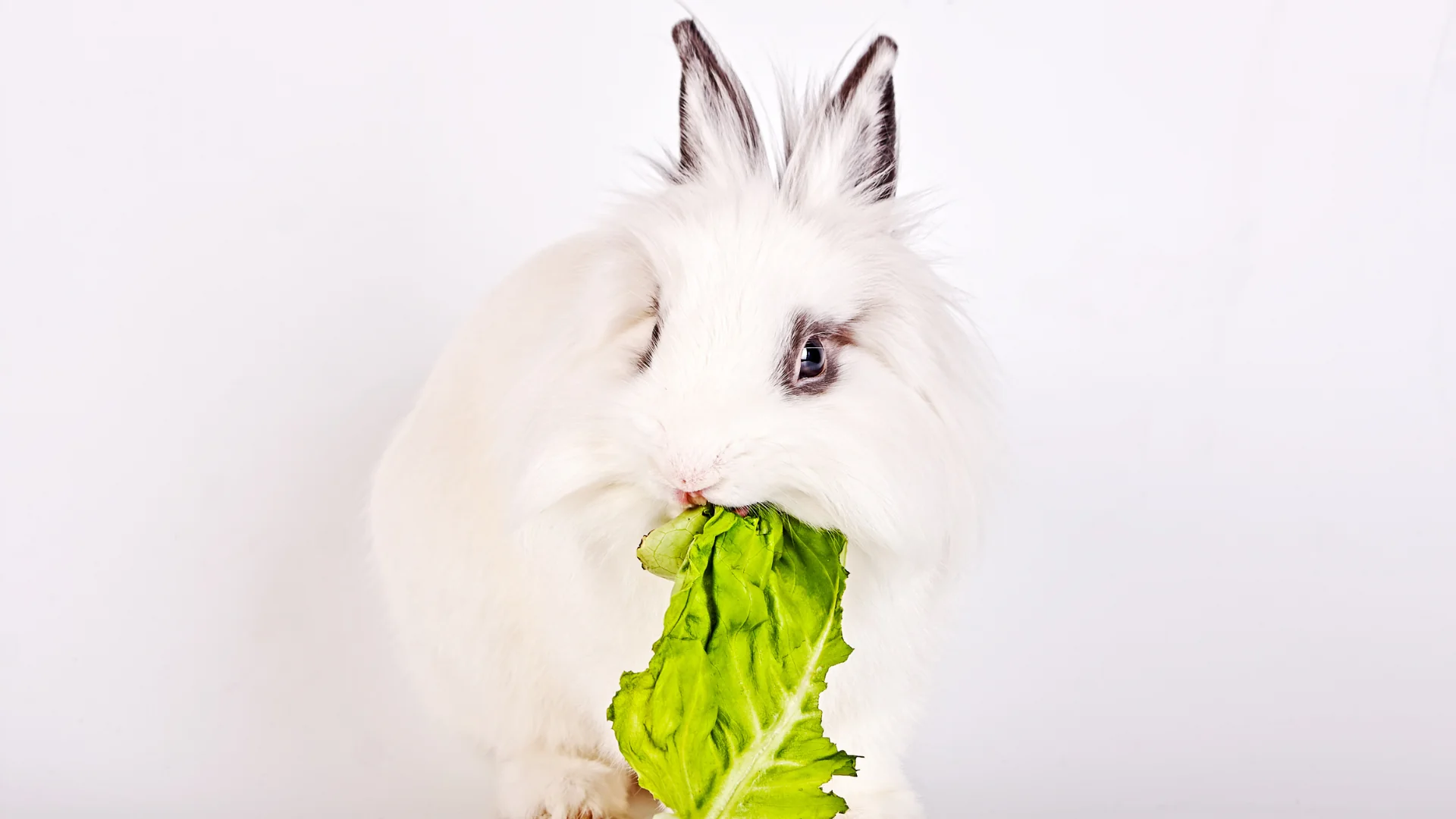
Getting your bunny’s diet right is key to keeping their rabbit’s digestive system and overall health in check. A diet high in fiber is non-negotiable for rabbits, and hay should make up the majority of what they eat to support the efficiency of the rabbit’s digestive system. Think of hay as a meal and an all-day buffet for your furry pal.
Fresh Greens
Fresh greens should be a staple in a rabbit’s diet. Leafy vegetables like romaine lettuce, kale, and parsley add variety and are packed with nutrients. These greens are an essential fiber source, promoting healthy gut motility, helps prevent hairballs, and wears down their continuously growing teeth. It’s best to introduce them gradually to avoid digestive upset. However, it’s important not to overdo it, as too many fresh veggies can sometimes lead to runny droppings.
Pellets
Pellets can complement a rabbit’s diet, but quality matters more than quantity. Stick to pellets high in fiber and low in protein and calcium. There’s no need to go overboard – a small handful daily will do the trick for most adult rabbits.
Treats
Regarding treats, spoiling your bunny is easy, but moderation is key. Fruits like apples or berries are best kept as occasional indulgences.
Foods to Avoid
In my experience, several human foods are harmful or toxic to pet rabbits and should be strictly avoided. Here’s a list of foods that I’ve learned can cause serious health issues:
-
Sugary Treats: Candy, chocolate, cookies, cakes, and pastries are high in sugar, which can lead to obesity, dental problems, and digestive upset in rabbits. They offer no nutritional value for them.
-
Processed Snacks: Chips, crackers, and cereal often contain high levels of salt, fat, and artificial additives that can harm a rabbit’s health.
-
Seeds and Nuts: Sunflower seeds, almonds, and peanuts are high in fat and can contribute to obesity and digestive issues. Some nuts also contain toxins that are harmful to rabbits.
-
Fruit Seeds and Pits: These can cause intestinal blockages, as they may get stuck in a rabbit’s digestive tract, leading to serious and potentially life-threatening obstructions.
It’s important for rabbit owners to keep these foods far out of reach to ensure their pets stay safe and healthy.

Preventative Care: Keeping Your Rabbit’s Digestive System Healthy
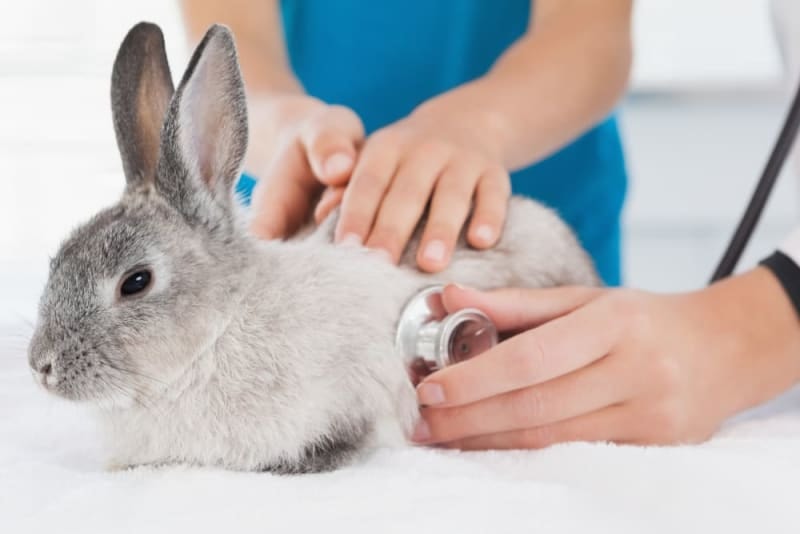
Vet Check-ups
Routine check-ups with a vet are super important to catch any issues before they become major headaches. A skilled vet will do more than just look for problems; they’ll offer advice tailored to your bunny’s needs.
At Home
At home, being observant can make a world of difference. Keep an eye on their eating habits, poop performance, and overall demeanor. Make mental notes of what’s normal for your rabbit so you can spot changes quickly.
Create a Stress-Free Environment
Creating a stress-free environment goes a long way. Minimize loud noises and sudden changes that can stress your rabbit and cause digestive issues. A calm bunny is often a healthy bunny, so keeping them relaxed pays off.
Remember, the goal is to stay proactive. A little attention to detail goes a long way in ensuring a happy, healthy life for your furry friend. Staying informed and attentive both safeguard against potential digestive meltdowns.
Here’s an additional video about the pet rabbit’s digestive system.
By: Madtown Anatomy
Ensuring Lifelong Health: A Guide to Proactive Digestive Care for Our Rabbits
In conclusion, understanding and maintaining our rabbit’s digestive health is crucial for both their well-being and our peace of mind as owners. By prioritizing a high-fiber diet with hay and fresh greens, we can ensure that our rabbits stay healthy and happy. It’s also important for us to be mindful of the foods we offer, avoiding sugary treats and processed snacks that can lead to serious digestive issues like obesity, GI stasis, and intestinal blockages. We can work together to provide the best care possible for our furry friends by staying informed and proactive.

Recognizing signs of digestive distress in our rabbits is another important responsibility. Symptoms such as decreased appetite, changes in poop production, lethargy, or bloating should never be ignored. If any of these signs appear, quick action—including a visit to the vet—is essential to prevent further complications. By staying vigilant, we can address any issues early and prevent them from becoming critical, ensuring the health and happiness of our rabbits.
Ultimately, being proactive in caring for our rabbits’ digestive health will lead to longer, healthier lives for them. Routine vet check-ups, encouraging exercise, and maintaining a stress-free environment contribute to good digestion. By paying attention to their diet and behavior, we can create a nurturing environment for our rabbits to thrive, promoting their long-term health and happiness.
FAQS
What is the Most Important Part of a Rabbit's Diet?
Hay is the most crucial component of a rabbit’s diet. It should be available in unlimited quantities at all times. High-quality hay, such as timothy, orchard grass, or meadow hay, provides essential fiber for healthy digestion, helps wear down their continuously growing teeth, and prevents hairballs.
Can I Feed My Rabbit Only Carrots?
No, carrots should only be given as an occasional treat. While they are a source of vitamin A, they are also high in sugar and can lead to dental problems and obesity if fed in excess. A balanced diet for rabbits should consist primarily of hay, with various fresh, leafy greens and a small amount of high-fiber pellets.
Are Rabbit Pellets the Main Food for Rabbits?
No, pellets should only be a small part of a rabbit’s diet. They are intended as a nutritional supplement and should not exceed 1/4 cup per 5 pounds of body weight per day. Overfeeding pellets can lead to obesity and other health problems. Hay and fresh vegetables should form the majority of their diet.
Connect with Us on Social Media and Spread the Bunny Joy!
Are you passionate about bunnies? We are, too, at The Rabbit Hop! Become part of our online community and enjoy:
Bunny Fun: Enjoy charming videos, discover interesting facts, and get tips for keeping your bunny happy!
Product Recommendations: Find the highest-rated items ideal for your furry friend.
Bunny Network: Engage with fellow bunny lovers who share your enthusiasm.
Follow us on:



